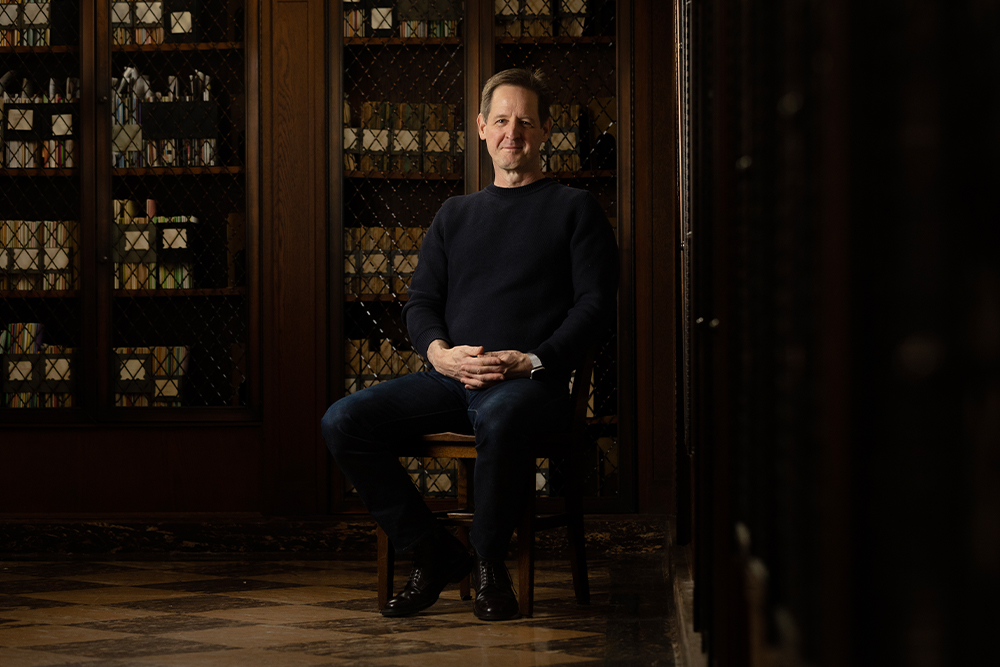When asked why he became a historian, UNC-Chapel Hill professor John Wood Sweet says he doesn’t have a good answer.
But then he starts reflecting on his childhood.
He grew up in Concord, Massachusetts, around the corner from Minute Man National Historical Park, which commemorates the start of the American Revolutionary War. It’s where the Battles of Lexington and Concord took place — and the destination of Paul Revere when he made his legendary midnight ride to warn locals that the British army was coming.
Just down the street from Sweet’s childhood home, authors like Ralph Waldo Emerson and Nathaniel Hawthorne wrote some of their most influential works at The Old Manse, and Lousia May Alcott used The Orchard House as her writing space and the setting for “Little Women.”
As a teenager, Sweet worked as a tour guide at these houses and as an assistant in the local library, where he consumed numerous classic historical novels, from “The Three Musketeers” to “The House of Seven Gables.”
“I grew up in a world where books and the past were very present,” he admits.
Here in Chapel Hill, the past remains alive — and thriving — for Sweet. The Carolina historian’s latest book, “The Sewing Girl’s Tale,” received a Bancroft Prize, one of the most distinguished academic awards in the field of history, among numerous other accolades. The book unpacks a legal battle over sexual assault that rocked New York City in the 1790s.
“The Sewing Girl’s Tale” represents Sweet’s first attempt at writing a character-driven historical narrative, and he’s using that experience to continue a project he began years earlier: a biography on Venture Smith, whose 1798 autobiography became the first American slave narrative to be published.
“These two stories have similar writing challenges,” Sweet shares. “Both are emotionally sparse, so you get a lot of action but not a lot of self-reflection and discussion of how people were feeling. As a historian, I’ve had to use available evidence and my imagination to fill out these compelling, emotional stories and make sense of what happened.”
Elevating a woman’s voice in a man’s world
In the late-1980s, as a graduate student at Princeton University, Sweet enrolled in a new class on sex and gender in history. He learned about a famous court trial from 1793, when a seamstress named Lanah Sawyer accused the wealthy Henry Bedlow of rape.
The trial provides testimony from the 17-year-old Sawyer, who felt courted by Bedlow until he forced her into a brothel and took advantage of her. While Sawyer’s case seemed strong, Bedlow’s social status and numerous lawyers — and the extreme tactics they employed — led to a verdict of “not guilty.”
While some of Sweet’s peers used the trial record for their own dissertations and projects, he wouldn’t return to its pages until joining the Carolina faculty in the early 2000s.
Sweet specializes in early American history and colonialism, with a focus on sexuality and gender. Today, he teaches a slew of classes on the topic, like “Sex in American History” — and he uses this case to teach students about the evolution of modern rape culture.
“Students are shocked by how similar this 200-year-old case is to today,” Sweet says. “They see the attempts of the defense to shame the survivor, to slander her, to question her motives. They see how deep the problem is and how longstanding it’s been.”
This post was originally published on this site be sure to check out more of their content.







